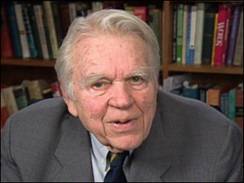NOW FOR SOMETHING ENTIRELY PHILOSARTRECAL
All the following excerpts from Sartre come from Sartre's Existentialism as selected by Gordon Marino in Basic Writings of Existentialism, Modern Library edition (2004).
Despair, Freedom of Action and the Human Connection in Existentialism
According to Sartre, despair is a sort of giving up anticipating results beyond which my will and a limited set of possibilities would predict. It is acting without expectations or hopes because “no God, no scheme, can adapt the world and its possibilities to my will.” Despair is relying only on things within my own will and letting the world go its own way. Can you imagine this wonderful thing of freedom—this despair that is a positive state of being, a sort of proof that one is fully alive and functioning?
Sartre says in another place that “From these few reflections it is evident that nothing is more unjust than the objections that have been raised against us. Existentialism is nothing else than an attempt to draw all the consequences of a coherent atheistic position. It isn’t trying to plunge man into despair at all. But if one calls every attitude of unbelief despair, like the Christians, then the word is not being used in its original sense. Existentialism isn’t so atheistic that it wears itself out showing that God doesn’t exist. Rather, it declares that even if God did exist, that would change nothing. There you’ve got our point of view. Not that we believe that God exists, but we think that the problem of His existence is not the issue. In this sense existentialism is optimistic, a doctrine of action, and it is plain dishonesty for Christians to make no distinction between their own despair and ours and then to call us despairing.”
“. . . it [existentialism] can not be taken for a philosophy of quietism, since it defines man in terms of action; nor for a pessimistic description of man—there is no doctrine more optimistic since man’s destiny is within himself; nor for an attempt to discourage man from acting, since it tells him that the only hope is in his acting and that action is the only thing that enables a man to live. Consequently, we are dealing here with an ethics of action and involvement.”
—John Paul SartreNot more than ten days ago, I was reading a piece of Christian writing on a blogsite, and it claimed that the Universe is meaningless without god. I come across that claim all the time by those who are religious, but I can testify that the belief is not true, at least not true for everyone. My atheism does not make me or the Universe feel empty or purposeless. In fact atheism ought to fill us with hope and strength, knowing that humans give all meaning and purpose to the Universe. It’s a sad religion
 that asks us to put our meaning and purpose outside ourselves into some pie in the sky, some supernatural phantasm, about which we know nothing except what a few old books want to tell us to imagine about that being. I do know that it’s a hard thing to accept our absolute freedom if we have spent our lives being undermined by religions which disembowel us and take our force from us and give it to an imaginary force outside of our will and our nature.
that asks us to put our meaning and purpose outside ourselves into some pie in the sky, some supernatural phantasm, about which we know nothing except what a few old books want to tell us to imagine about that being. I do know that it’s a hard thing to accept our absolute freedom if we have spent our lives being undermined by religions which disembowel us and take our force from us and give it to an imaginary force outside of our will and our nature.I respond positively when Sartre suggests that existentialists are joined inseparably with all humanity by our existential “thinking”, not selfishly isolated as some would like to tell us that we are:
“The philosophies of Descartes and Kant to the contrary, through the I think [cogito] we reach our own self in the presence of others, and the others are just as real to us as our own self. Thus, the man who becomes aware of himself through the cogito also perceives all others, and he perceives them as the condition of his own existence. He realizes that he can not be anything (in the sense that we say that someone is witty or nasty or jealous) unless others recognize it as such. In order to get any truth about myself, I must have contact with another person. The other is indispensable to my own existence, as well as to my knowledge about myself. This being so, in discovering my inner being I discover the other person at the same time, like a freedom placed in front of me which thinks and wills only for or against me. Hence, let us at once announce the discovery of a world which we shall call intersubjectivity; this is the world in which man decides what he is and what others are.”
PS: Andy Rooney is probably an atheist or very nearly one. That's his picture above.
No comments:
Post a Comment